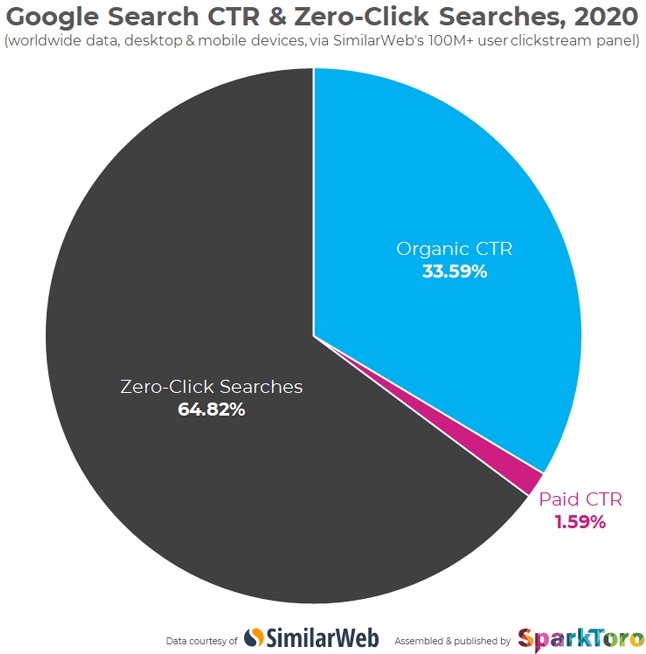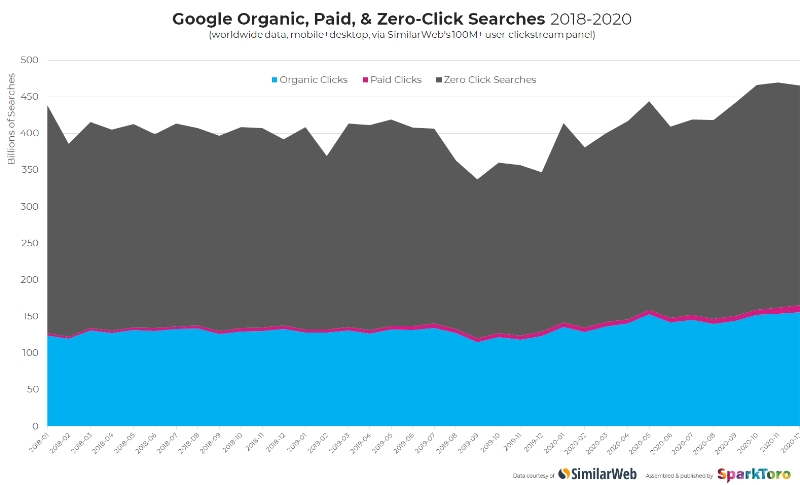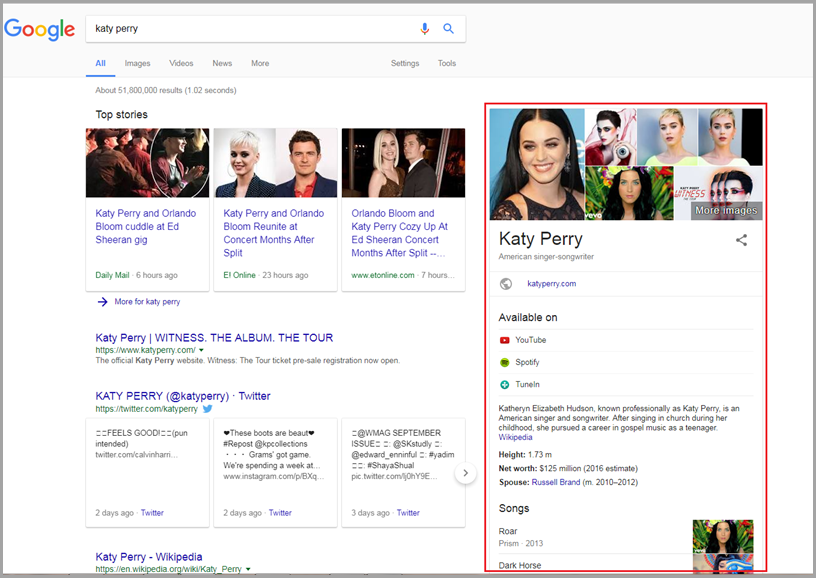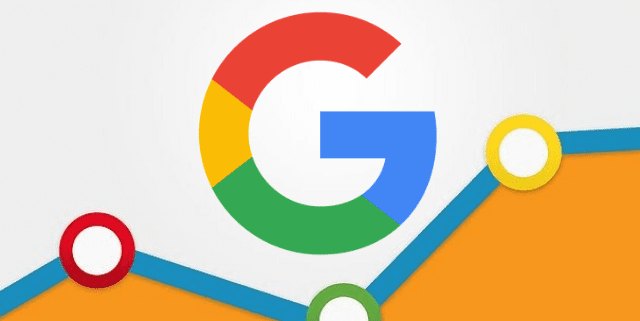Almost 65% of Google Searches Don’t Lead To A Website Visit
Throughout 2020, approximately 65% of searches made on Google were “zero-click searches”, meaning that the search never resulted in an actual website visit.

Zero-click searches have been steadily on the rise, reaching 50% in June 2019 according to a study published by online marketing expert Rand Fishkin and SimilarWeb.

The steep rise in these types of searches between January and December 2020 is particularly surprising because it was widely believed zero-click searches were largely driven by mobile users looking for quick-answers. Throughout 2020, however, most of us were less mobile than ever due to Covid restrictions, social distancing, and quarantines.
The findings of this latest report don’t entirely disprove this theory, though. Mobile devices still saw the majority of zero-click Google searches. On desktop, less than half (46.5%) were zero-click searches, while more than three-fourths (77.2%) of searches from mobile devices did not result in a website visit.
Study Limitations
Fishkin acknowledges that his reports do come with a small caveat. Each analysis used different data sources and included different searching methods, which may explain some of the variance. Additionally, the newer study – which included data from over 5.1 trillion Google searches – had access to a significantly larger data pool compared to the approximately one billion searches used in the 2019 study.
“Nonetheless, it seems probable that if the previous panel were still available, it would show a similar trend of increasing click cannibalization by Google,” Fishkin said in his analysis.
What This Means For Businesses
The most obvious takeaway from these findings is that people are increasingly finding the information they are looking for directly on the search results pages, rather than needing to visit a web-page for more in-depth information.
It also means that attempts to regulate Google are largely failing.
Many have criticized and even pursued legal action (with varying levels of success) against the search engine for abusing their access to information on websites by showing that information in “knowledge panels” on search results.

The argument is that Google is stealing copyrighted information and republishing it on their own site. Additionally, this practice could potentially create less reason for searchers to click on ads, meaning Google is contributing to falling click-through rates and making more money off of it.
Ultimately, Google is showing no signs of slowing down on its use of knowledge panels and direct answers within search results. To adjust to the rise of zero-click searches, brands should put more energy into optimizing their content to appear in knowledge panels (increasing your brand awareness) and diversify their web presence with social media activity to directly reach customers.








Leave a Reply
Want to join the discussion?Feel free to contribute!